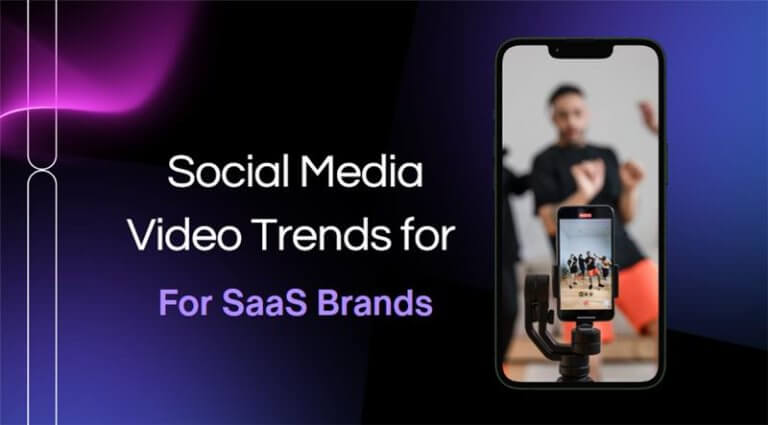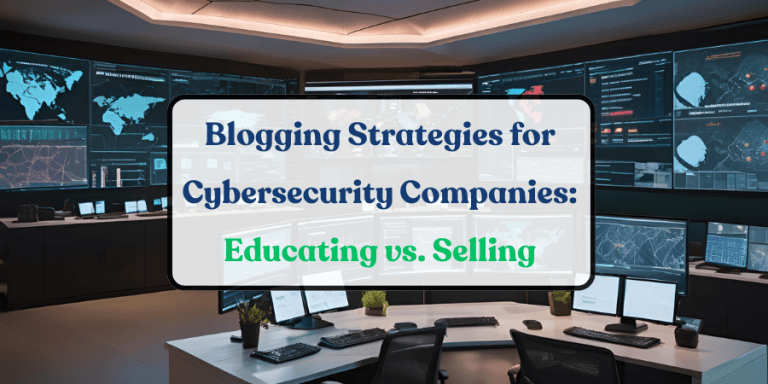What convinces B2B buyers to trust an enterprise tech company? While marketing claims and product specs matter, real-world proof often seals the deal. Enterprise tech case studies provide that proof by showcasing actual success stories, demonstrating tangible outcomes, and reinforcing credibility.
A study by the Content Marketing Institute found that 73% of B2B marketers consider case studies one of the most effective content types. Buyers, especially in enterprise IT and SaaS, look for data-backed evidence before making purchasing decisions. When done right, enterprise tech case studies don’t just validate a company’s expertise—they also serve as powerful sales and marketing assets. In this blog, we’ll explore why case studies are essential, what makes them effective, and how enterprise tech firms can use them to build trust and drive sales.
Why Case Studies Matter for Enterprise Tech Firms
Enterprise technology purchases involve long sales cycles and multiple decision-makers. A generic marketing pitch isn’t enough. Buyers want to see how a solution has worked for companies like theirs.
- B2B credibility: Decision-makers need confidence that a vendor can solve their challenges. A well-documented case study builds trust and reduces skepticism. According to a report, 97% of B2B buyers say peer recommendations and case studies are the most reliable types of content. When companies see similar businesses achieving success, they’re more likely to consider your solution.
- IT marketing success stories: Instead of abstract claims, case studies offer concrete proof of ROI, implementation success, and business impact. A case study showing how a company reduced cloud migration costs by 40% with your solution is far more persuasive than a generic promise of “cost savings.”
- SaaS content marketing: SaaS companies, in particular, benefit from showing how their software integrates into real business environments, improving efficiency and outcomes. A SaaS case study might highlight how a fintech firm reduced customer onboarding time by 50% using automation tools.
For example, Salesforce frequently publishes case studies showing how businesses have increased productivity or revenue using its CRM. These stories go beyond features, illustrating actual business benefits. The more specific and data-driven the story, the more compelling it becomes.
Key Elements of a Strong Enterprise Tech Case Study
A well-crafted case study follows a structured approach to make the impact clear.
- Clear Business Challenge: Define the problem your client faced. For example, “a Fortune 500 retailer struggled with siloed data, leading to poor customer insights.” The more pressing and relatable the problem, the better your case study will resonate with potential clients.
- Solution Implementation: Explain how your product was used. For example, “our AI-driven analytics platform unified their data, offering real-time customer insights.” Explain what made your solution unique and why it was chosen over competitors.
- Quantifiable Results: Use numbers to show impact. Example: “Customer retention increased by 27%, and sales grew by 18% in six months.” If possible, add third-party validation or internal data to strengthen the claims.
- Client Testimonial: A direct quote from a satisfied client adds credibility. Example: “Switching to this solution helped us streamline operations and boost revenue.” Personalizing the story with real names (if possible) makes it even more relatable.
- Compelling Storytelling: Make the case study engaging. Avoid overly technical language; instead, focus on the business transformation. Start with a hook, such as: “Before implementing this solution, Company X was losing millions due to inefficient operations.” A well-written narrative keeps the reader engaged. .
How to Gather and Use Client Testimonials in Case Studies
Client testimonials add authenticity and credibility to enterprise tech case studies. Here’s how to effectively collect, format, and use them:
- Ask at the Right Time: The best time to request a testimonial is right after a successful project or milestone. Clients are more likely to share positive feedback when the benefits of your solution are fresh in their minds.
- Provide a Structure: Instead of asking for general feedback, guide clients with specific questions:
- What was the key challenge you faced before using our solution?
- How has our solution impacted your business?
- Can you share measurable results or improvements?
- Use Direct Quotes: Authentic, unedited testimonials carry more weight. Where possible, attribute them with the client’s name and role to enhance credibility.
- Incorporate Testimonials Throughout: Instead of placing them only at the end, weave testimonials into different sections of the case study—problem statement, solution implementation, and results. This makes them more persuasive.
- Leverage Multimedia Formats: Video testimonials and audio snippets make testimonials even more engaging. If possible, include a short video clip of the client sharing their experience.
Best Practices for Creating Impactful IT Marketing Success Stories
Writing a case study isn’t just about reporting facts. It’s about presenting them in a way that resonates with potential buyers.
- Choose the Right Clients: If possible, highlight well-known brands or industry leaders. These names add instant credibility. If you don’t have big-name clients, focus on those with compelling stories and quantifiable outcomes.
- Keep it Concise and Engaging: Avoid lengthy technical explanations. Focus on the key takeaways. A good case study should be scannable, with bold headings and bullet points.
- Use Visuals: Graphs, infographics, and before/after metrics enhance readability and impact. A study by Venngage found that visual content increases reader retention by 42%.
- SEO Optimization: Ensure that enterprise tech case studies, B2B credibility, and other keywords appear naturally throughout the content. Placing them in headers, subheaders, and meta descriptions helps in ranking.
A great example is HubSpot’s case studies, which include clear data points, before-and-after comparisons, and direct quotes, making them easy to digest and compelling for potential clients. The best-case studies don’t just inform, they persuade.
How SaaS Companies Can Use Case Studies for Content Marketing
SaaS companies, in particular, can leverage case studies in multiple ways:
- Lead Magnets: Offering case studies as downloadable content (PDFs, whitepapers) can help capture leads. According to HubSpot, businesses that use gated content generate 3x more leads.
- Website Content: Dedicated case study pages improve B2B credibility and conversions. A structured layout, featuring case studies by industry, can help potential buyers find relevant examples quickly.
- Email Campaigns: Sending relevant case studies to prospects can move them further down the sales funnel. For example, a cybersecurity company sends a case study to IT directors about how they reduced breach risks by 60%.
- Sales Enablement: Sales teams can use case studies to address client concerns with real-world proof. A well-placed example in a sales call can make all the difference.
For example, Slack has a case study on how Airbnb improved internal communication efficiency by 32% after adopting the platform. This kind of real-world example helps new prospects see the software’s potential value.
How Gutenberg Helps Enterprise Tech Firms with Case Studies
At Gutenberg, we understand the importance of well-crafted case studies in driving business growth. Our approach ensures that each case study is not just a success story but also a strategic marketing asset.
- Deep Industry Understanding: We specialize in crafting enterprise tech case studies that highlight business impact. Our team works closely with enterprise clients to bring out the most compelling aspects of their solutions.
- SEO-Optimized Content: Our case studies naturally incorporate keywords like IT marketing success stories and SaaS content marketing to maximize visibility. Every case study is written with both storytelling and search ranking in mind.
- Client-Centric Approach: We work closely with tech firms to bring out their unique value propositions and real-world results. We ensure that every case study tells a persuasive story that potential clients can connect with.
Conclusion
In a crowded enterprise tech market, credibility is everything. Enterprise tech case studies provide the proof potential customers need to trust your solutions. By showcasing IT marketing success stories, leveraging SaaS content marketing, and using compelling client testimonials, tech firms can turn case studies into powerful sales tools.











